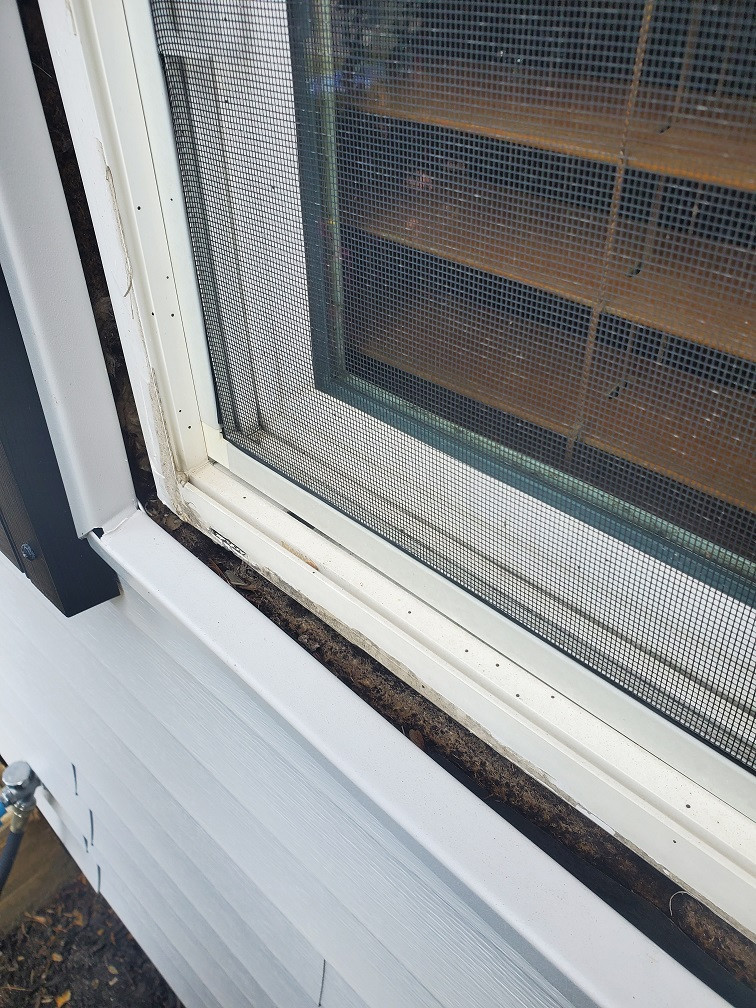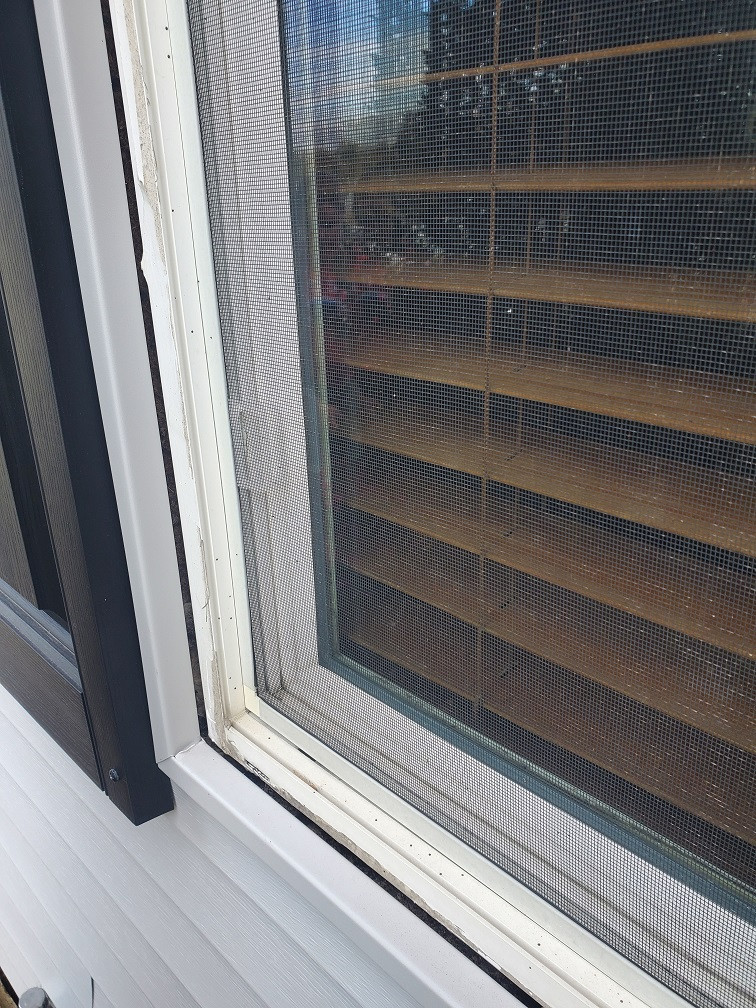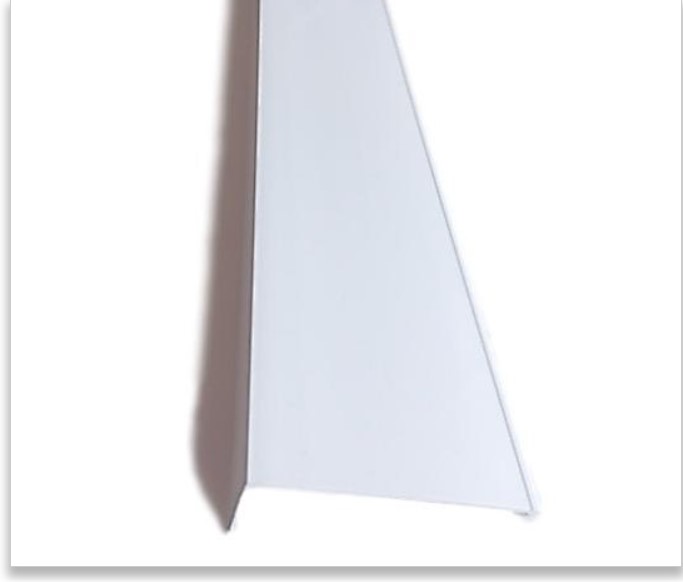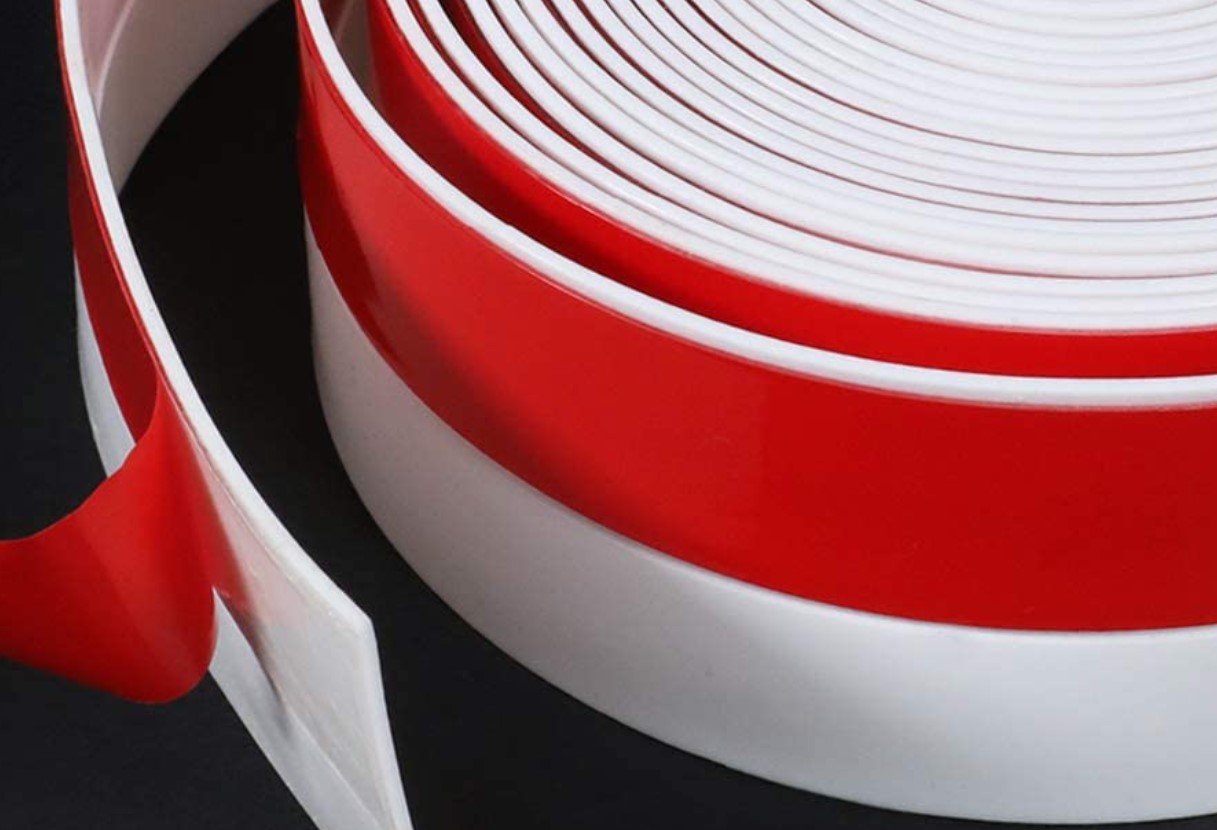I had new vinyl siding replaced and all my windows look like this. Do I need to caulk this seam where the vinyl meets the white portion of the window (I know not to caulk the weep hole)? Seems odd to allow water to penetrate that boarding behind the siding. The joint is easy to pull away from the window, which the first picture shows.
-
It's hard to tell from the photos exactly what that dark area is. The installer/manufacturer of your vinyl siding should at the least have instructions on how to apply and seal the siding around door and window openings. Have you talked to them?– ArmandCommented Oct 22, 2022 at 20:02
-
Clean the old caulking off first.– crip659Commented Oct 22, 2022 at 20:02
-
1And I'm not sure what the black line is between the trim and the window. It almost looks like a gasket.– SteveShCommented Oct 23, 2022 at 0:45
-
3This siding appears to be done very poorly. Caulk should be a last choice for removing water. The bulk of the water removal should be done by the flashing around the window and the drainage plane behind the siding. If I were you I would get a second siding contractor out to take a look at this and give you a plan of action.– KMJCommented Oct 25, 2022 at 15:05
-
1Call the manufacturer of the siding and ask for the name of a local siding contractor that they would hire to put siding on their mother's house. Then call up the recommended contractor and pay them a couple of hundred dollars for a written inspection report. Now you have leverage with the contractor who did that job which will motivate them to correct it.– RetiredATCCommented Oct 26, 2022 at 3:36
3 Answers
I'm going to reject the premise of your question outright. Windows should be flashed properly and the siding should have a drain plane installed behind it. This isn't a job for caulk.
Some thoughts that may be helpful:
- In modern construction, sill flashing and house wrap provide the actual weatherproofing around and below windows. Your home appears to have neither.
- Vinyl siding provides visual appeal and protection against physical damage. It does not offer much in the way of weatherproofing. Air and wind-driven rain move freely around it.
- That gap is too large for caulk, and the vinyl channel is too flexible as a base for caulk. It would look terrible, and it would likely fail.
- Vinyl siding is meant to move as it expands and contracts due to temperature, and rarely should it be caulked.
I'm afraid I don't have a great solution for you here. Your siding replacement was done very poorly, and there are no shortcuts to a resolution. Your siding contractor failed miserably, in my opinion, by not providing a path to a viable outcome.
These are just a few options:
Vinyl sills up to 5 inches wide, secured with variety of construction adhesives.
Silicone rolls withstand temperatures to -20 degrees. Cut to fit. Many widths and lengths.
Check your local home improvement, lumber, and hardware stores.
This gap should be filled with foam backer rod that looks like this:
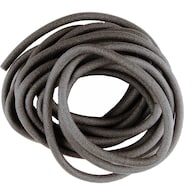
image courtesy of lowes.com. No endorsement intended or implied
It comes in a variety of sizes up to 3/4" and is designed to be pushed into gaps to fill most of the space. You may need a couple of different sizes, depending on the size of your gaps. You may also need to push more than one piece into the gap along any given side to ensure that most of the space is filled up and the top of the rod is near (but not flush with or above) your desired finished surface. You then caulk over the top of the rod, filling the surface with a nice looking bead of caulk.
When you're done, you step back and say "I meant for that to happen!"*.
Of course, the better option would have been to have the siding company do a better job of trimming out around the windows in the first place, but that's probably water under the bridge by now.
*Warning: that's a link to a really bad movie, like 0.05 stars out of 100, you really don't need to click it. Stuff like that will stick in your head for a lifetime if you're not careful...
-
This isn't a viable solution. It'll be visually hideous and would likely fail in short order. It's just not how vinyl siding works. Commented Oct 25, 2022 at 14:39

